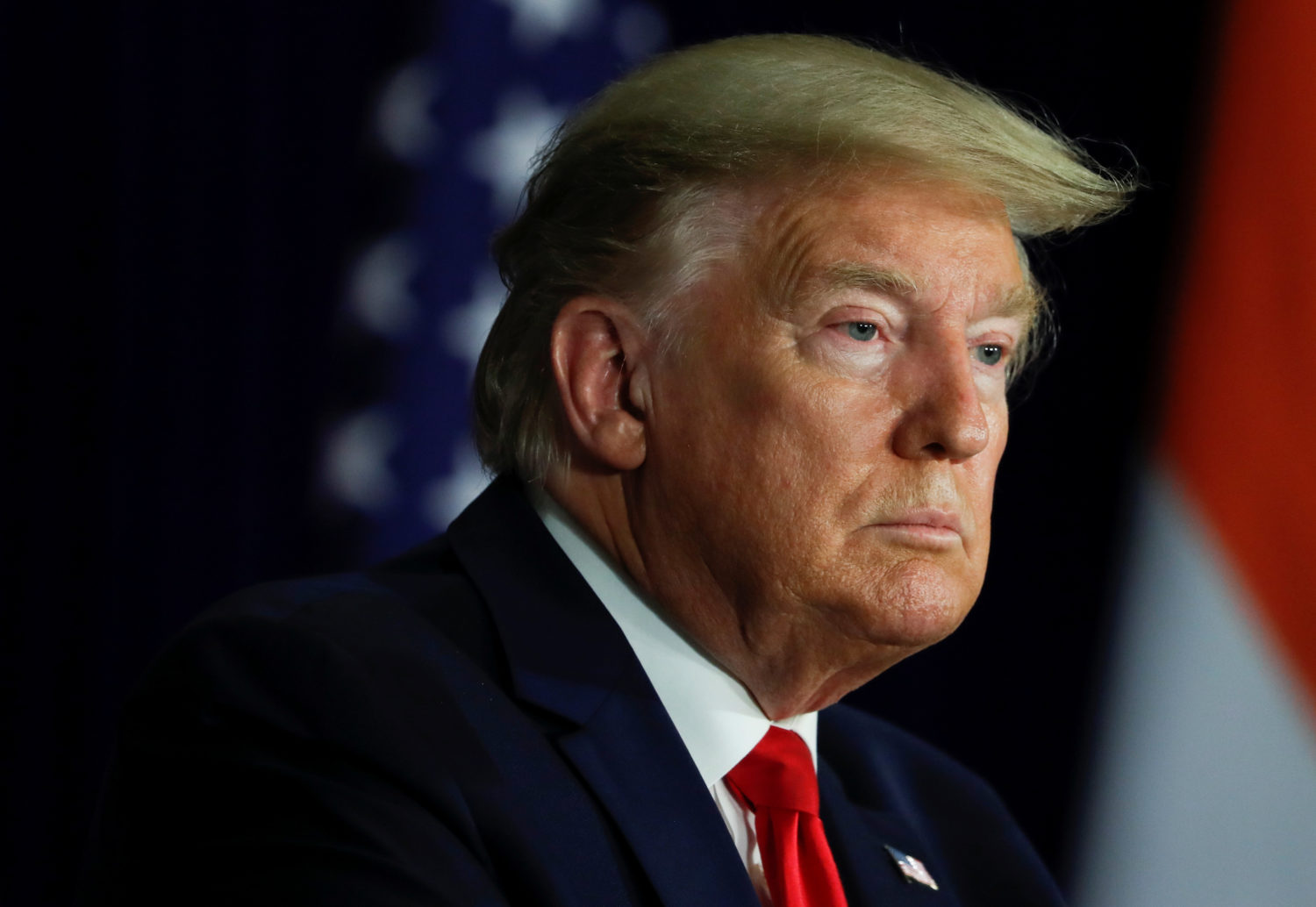
Reuters
By Steve Holland and Richard Cowan
WASHINGTON (Reuters) – As U.S. coronavirus cases rose steadily, the White House and Congress negotiated measures on Tuesday to bolster the U.S. economy and Americans’ paychecks against the outbreak’s impact, although there was no immediate sign of a deal.
The rise in the number of U.S. cases of COVID-19, a highly contagious and sometimes fatal respiratory illness, has concerned health officials and spurred calls within Congress for action to expand testing and avert an economic meltdown.
“We had a good reception on Capitol Hill. We’re going to be working with Republican and Democratic leadership to move a legislative package,” Vice President Mike Pence, who is leading the White House’s coronavirus task force, told a White House briefing.
Almost three-quarters of U.S. states have confirmed cases of COVID-19. A running national tally kept by the Johns Hopkins University center tracking the outbreak puts the number of cases at 1,025, with 28 deaths. Washington state’s governor warned of tens of thousands more cases without “real action,” and New York’s governor deployed National Guard troops as a containment measure in a hard-hit New York City suburb.
U.S. stocks rebounded in their largest daily gain since late 2018 on hopes that a government stimulus package was in the making. In Asia, though, on Wednesday, Asian shares and Wall Street futures fell as growing scepticism about Washington’s stimulus knocked the steam out of the rally.
A central feature of the administration’s legislative proposal is payroll tax relief, although the extent and duration of the proposal were unclear.
White House officials have also said the administration could undertake executive action to help small businesses and workers, including those who do not receive paid sick leave.
Trump is scheduled to meet with bank executives at the White House on Wednesday.
U.S. Treasury Secretary Steven Mnuchin, who is leading negotiations on behalf of Republican President Donald Trump, met with Democratic House Speaker Nancy Pelosi to discuss a possible deal.
“We’re going to work together on a bipartisan basis to figure out how we can get things done quickly that are going to help the Americans that are most impacted by this and small and medium-sized businesses that are impacted,” he said.
Pelosi said the meeting was aimed at seeing “where our common ground was” on a set of legislative proposals.
In remarks to reporters, she warned that any package should not contain “trickle-down solutions that only help a few.”
Democrats are challenging the Trump administration to tightly target new measures at people directly affected by the coronavirus. Any measure would need to pass the Democratic-controlled House as well as the Republican-controlled Senate before reaching Trump’s desk.
“I hope we don’t play politics with this. Mixing politics with a pandemic is not good. It’s terribly counterproductive,” said Republican Senator Pat Roberts.
‘MIXED REVIEWS’
All three major U.S. benchmark stock indexes on Tuesday rose nearly 5%, one day after suffering their largest losses since the 2008 financial crisis.
Prospects for a second day of gains on Wednesday dimmed as U.S. equity index futures slid 1% after the overnight trading session got under way.
Trump met with Republican lawmakers and again downplayed the risks from the coronavirus. “It will go away. Just stay calm. It will go away,” he said.
A senior Senate Republican aide said Trump’s payroll tax proposal got “mixed reviews” among Republican senators who attended.
Some Senate Republicans said a potential deal could include $300 billion in payroll tax relief that could help people make rent and mortgage payments, or pay medical bills if family members’ work hours are reduced during the outbreak.
Democrats accused Trump of being more focused on soothing Wall Street’s nerves than on protecting the public from the health and economic fallout of the fast-spreading epidemic. The White House has been accused of inadequate preparation for the outbreak and a slow rollout of coronavirus testing.
“President Trump and his administration should be putting people before corporations, and they should be focused on taking appropriate steps to keep the American people and their economic security safe,” Senate Democratic leader Chuck Schumer said.
Democrats are pushing for paid sick leave, expanded and free testing for the coronavirus and other measures.
OUTBREAK EXPANDS
More than 116,000 people have contracted the coronavirus worldwide since it surfaced in China late last year, according to the World Health Organization. More than 4,000 people have died.
Italy, which has the highest death toll outside of China, has put its entire population of 60 million on virtual lockdown.
At least 35 U.S. states and the District of Columbia have reported infections of COVID-19. New Jersey on Tuesday reported its first death.
New York Governor Andrew Cuomo said schools would be closed and public gatherings suspended in a coronavirus “hot zone” in New Rochelle, a New York City suburb, and deployed National Guard troops there.
The United Nations said it would be closing its headquarters in New York to the public until further notice.
As the outbreak spreads, daily life in the United States has been increasingly disrupted, with concerts and conferences canceled and universities telling students to stay home and take classes online.
Democratic presidential contenders Joe Biden and Bernie Sanders both canceled rallies in Ohio on Tuesday night, citing warnings from public health officials, as six states voted in the party’s nominating contests.
The Democratic National Committee said its presidential debate in Arizona on Sunday would be conducted without a live audience because of health concerns.
(Reporting by Richard Cowan, Susan Cornwell, Susan Heavey, Andrea Shalal, David Lawder and Lisa Lambert in Washington, Deborah Bloom in Olympia, Washington and Nathan Layne and Gabriella Borter in New York; Additional reporting by Brendan O’Brien, Eric Beech and Makini Brice, Rama Venkat in Bengaluru; Writing by Paul Simao and Lawrence Hurley; Editing by Bill Berkrot, Cynthia Osterman and Peter Cooney)












